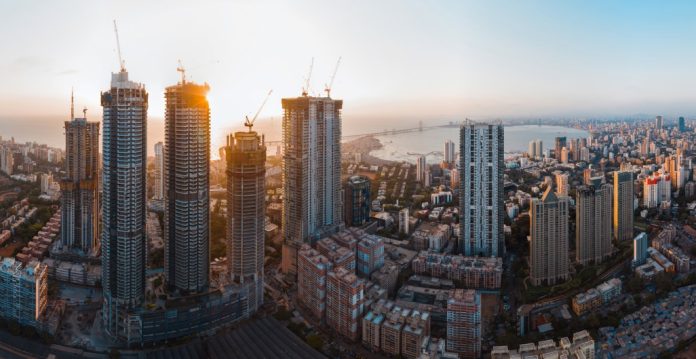IUDX allows for data exchange between various city departments, government agencies, citizens and private sector. Team Estrade had a conversation with Dr Inder Gopal, CEO of IUDX – India Urban Data Exchange. Following are the excerpts of this conversation,
“Though IUDX was originally created for the smart cities of the country and was aimed at creating core digital infrastructure for our cities, it was designed as a general platform for data exchange. “
1) Tell our readers about IUDX Program? Its journey, major achievements and challenges since inception.
IUDX Program is a pioneering program within the Indian Institute of Science, initiated by the Ministry of Housing and Urban Affairs (MoHUA) and Ministry of Electronics and IT (MeitY), to enable the use of data for the public good. IUDX’s state-of-the-art, open source software platform is a key tool in realizing the vision of data-powered cities. It allows all forms of non-personal data to be shared in a controlled and secure fashion, enabling data providers to create innovative services and generate value.
IUDX will very soon celebrate its second anniversary and we can proudly say that despite the lockdowns and the multiple challenges posed by the pandemic, we have been able to achieve all the milestones that were mandated by the Smart Cities Mission (SCM). In June last year, the Bureau of Indian Standards adopted a standard for data exchange interfaces modeled after theIUDX API’s and this will become the recommendation for all Indian cities.
The biggest challenges for IUDX are the culture of data sharing in the country and the quality of data that is available. Also, due to the economic, educational, social, and ethnic diversity, the scale and scope of our urban problems are much higher in comparison to other countries. We need to ensure that our solutions are inclusive and cater to the needs of all segments of society.

2) Tell us about your professional journey and your experience’s so far in this industry.
My professional journey has been a long and winding one. After I obtained my PhD in Computer Science, I worked as a Researcher in distributed systems and communication networks, publishing many dozens of papers and getting elected to IEEE Fellow. I then moved to the entrepreneurial side, founding two venture-funded start-up companies, and eventually selling both. I then moved into the corporate sector, working as a senior executive in companies such as AT&T, IBM, and Ericsson. Most of my career was spent in the US, but three years ago I decided to move back to India. I took on my current role as a Research Professor in IISc Bangalore, working closely with the central government on applying technology to help the public. IUDX is the first result of this new career direction but I have a few other initiatives in other governmental sectors in the pipeline.
“IUDX program is an excellent example of how collaboration between academia, government and industry can create something of significant value.”
3) Throw some light on the data exchange platform sector.How it has evolved and how do you see the future growth of this market, along with your company’s growth?
Data exchange platforms ensure data protection and privacy, which are extremely critical for a data ecosystem. Digital transformation of business processes, rapid growth of data centres and expansion of IT services, the rapid progress being made by IoT ecosystems etc., are all helping fuel the demand for data exchange platforms.
Growth in IUDX will come in several ways. Within the urban sector, we expect to see growth the new cities and to new applications. Eventually, we expect IUDX to become ubiquitous among Indian cities. In the future, we will also explore possible deployments outside India. The concepts that underlie IUDX can be easily adopted to other sectors such as Agriculture, Logistics and Health. We see this as another major opportunity to expand the footprint of this system and create a broader benefit for the country.
“In Vadodara…IUDX has helped create an on demand end-to-end resistance free path for emergency assistance, eliminating chances of human error in the process…”
4) Tell us about your collaboration with Smart Cities Mission under the Ministry of Urban and Housing Affairs.
The IUDX program is an excellent example of how collaboration between academia, government and industry can create something of significant value. SCM needed an overarching strategy to overcome both organizational and technological siloes in order to realize the full potential of smart cities. This led to a research project that took birth in the Indian Institute of Science, Bangalore and is now institutionalised in the form of IUDX Program. IUDX is funded by and supported by SCM in all its endeavours, including advocating a data driven model for urban governance.
5) Also, tell us about how IUDX Program will help to improve governance, infrastructure and interoperability amongst various public service departments.
To answer your question, I would like to give you an example of our recent work in the city of Vadodara. In Vadodara, by using various datasets from multiple city departments like real-time location coordinates, traffic density, traffic junction coordinates, maps and routes, location co-ordinates of healthcare facilities etc, IUDX has helped create an on demand end-to-end resistance free path for emergency assistance, eliminating chances of human error in the process and also reducing the time and effort taken in creating a green corridor every time a need arises.
This is just one scenario where we have explored the synergies between different public service departments to provide a service to the citizens. With the help of data exchange, departments have the ability to find the data, access it, and create multiple new applications in line with creating beneficial products for people of their cities. The possibilities are endless.
6) What kind of technologies you’re using for the Smart Cities Mission and how this will solve complex urban problems and address them with scalable and sustainable solutions?
We are using a variety of technologies within the IUDX platform. Everything we build into the platform, whether developed by the IUDX team, or whether adopted from another source, is Open-Source. That is a key tenet of the IUDX program. We are entirely cloud-based and containerised, employing the latest cloud orchestration technologies to enable rapid deployment and tuning of IUDX instances. We are also heavily focused on security and data privacy, using sophisticated new techniques such as differential privacy to ensure IUDX is bullet-proof in its aspects.
7) What will be the cost-benefit that this platform will provide to various industries?
Though IUDX was originally created for the smart cities of the country and was aimed at creating core digital infrastructure for our cities, it was designed as a general platform for data exchange. Our core technology is therefore applicable in multiple sectors such as Healthcare, Agriculture, Logistics, Industrial, Financial and Education.
Our platform is open source and is based on standard APIs, which means that it is easily scalable with lower cost and higher speed of development of industry-specific solutions. Also, direct access to a wide variety of data would help in more meaningful research and innovative solutions, which could be the game changer for the sector. IUDX will also play a key role in monetizing data and creating a data marketplace helping the industries to broker third-party data and benefit from the brokerage.






